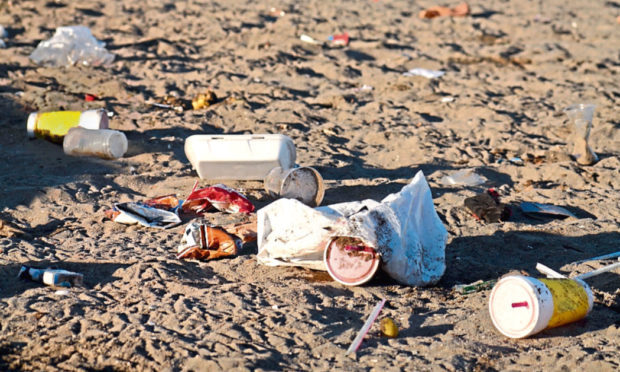It was used toilet paper. The scrap floated past, like seaweed. For the first swim of the holiday, it wasn’t a good start. We are promised paradise, but get partially decayed toilet paper in the salty waters of the Mediterranean.
The Med is a troubled sea. Unlike the major oceans, free to flow from side to side, the Med is a tub. The water floods over the high lip at the Gibraltar straits and fills the hollow which stretches from Spain to Israel. Geologists think the tub came before the ocean – that there was a great sunken land mass into which waterfalls sprayed from the edges. At some time the Atlantic broke through a land barrier and filled up the hole.
The effect is that the Med traps salt and pollutants in its boundaries, getting ever more saline, ever more disgusting. The world’s pleasure pool is an open septic tank. Little wonder the fish stocks have crashed.
When people became aware of this during the economic boom of the 1970s, measures were put in place to stop sending raw sewage into the water. Much improved treatment isn’t enough though, given the volume of waste hitting the waters.
It’s not just poo either. The chief excrement of the modern world floats, sinks and clogs the waters – plastic. A tin can will take far less time to decay in salty waters than a plastic bottle. Plastic takes hundred of years, and even then “decay” may mean only broken into smaller parts, ready to be swallowed by fish and birds.
Astonishingly, the world population of seabirds is thought to have shrunk by two thirds in the last 50 years. Consider that for a moment. The gulls behind the trawler, the albatross of the ancient mariners, the diving petrels – culled to a third of what they were.
I don’t know if ocean pollution alone is responsible – warmer waters will also be changing food cycles, for example. What does seem clear is that our stewardship of the magic waters is abysmal.
Astronomers once thought space an arid place. No water was thought to exist on other planets. The idea that Mars had canals grew from a mis-translation of “canali” and everywhere else was thought to be stone and gas. Yet science also thought – still does – that Earth’s water came in the form of frozen oceans stuck to meteorites crashing into our planet – like giant snowballs.
It is now thought that water can be found on the moons of Saturn, and the latest theory is an underground loch on the moon. Space is wetter than we used to think.
Yet the magic potential of H2O, to contribute to the creation and sustenance of carbon life, is still an Earth-only trick. Our response to this wonder is to pee in the pot. We extract groundwater at a rate too fast for it to be replenished, which is why the world is steadily losing viable arable land.
As for our oceans, we are systematically ruining them. The special quality of humans to destroy that which they depend on is seen for all in its glorious stupidity.
According to the Ellen Macarthur Foundation, eight million tonnes of plastics enter the ocean each year. Charitable efforts to reclaim this waste are thought to recover less than 0.5%.
When you come out of the Med and go to a local shop for some supplies, you see racks of water – half-litre, one-litre and five-litre bottles. Every customer purchases at least one, most buy several. And that happens everyday, for everyone on the European coastline of the sea.
People care and will do the right thing. We are all prepared to recycle, not just plastic but other waste. Yet we have been sadly let down by our politicians.
The point of a politician in a complex, developed society is to identify a problem, legislate for a real solution and then make it as easy as possible for people to comply.
Yet politicians have created a system where it is hard to tell if the plastic in your hand is recyclable or not, hard to return it to the authorities, hard to find an alternative.
Man’s destruction of the environment, through emission, waste and pollutants, is a crisis as big as any world war. It threatens life on earth. It requires immediate action.
What it doesn’t need is the tokenism of a small charge on a plastic bag, a food and drink sector dependent on non-recyclable plastic and a recycling system that is haphazard and unclear. The laws of Scotland are as relevant to the future of our planet as the laws of any other country, our habits as significant as any other groups. Yet we are legislating at the speed of a people who think they have all the time in the world.
We need this autumn’s legislative programme from the Scottish Government to include real action in moving Scotland to a 100% recyclable society within a matter of years. Yes, it will be expensive, and certainly inconvenient, but nothing compared to the price we’d pay for a dying planet.










